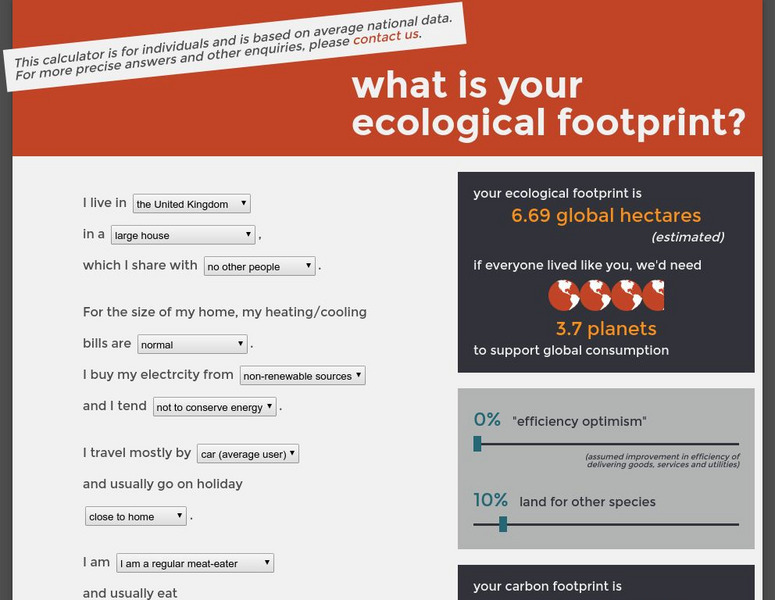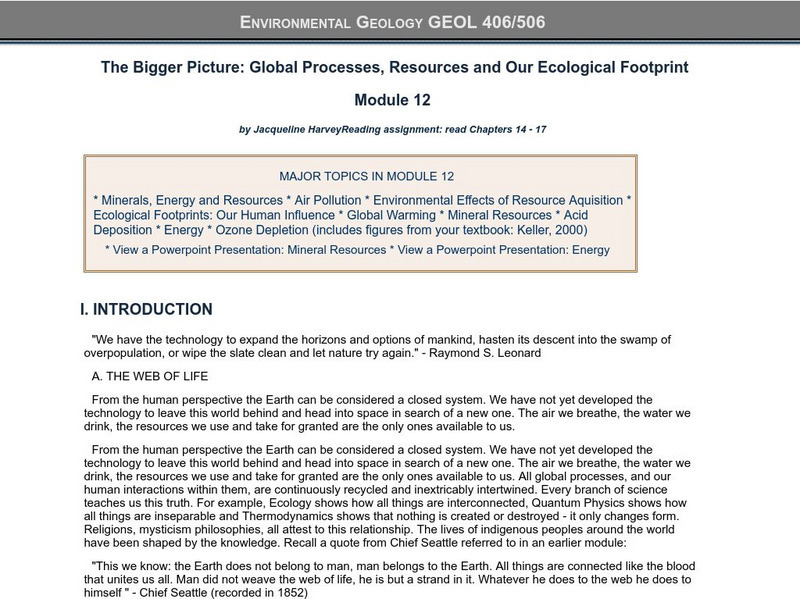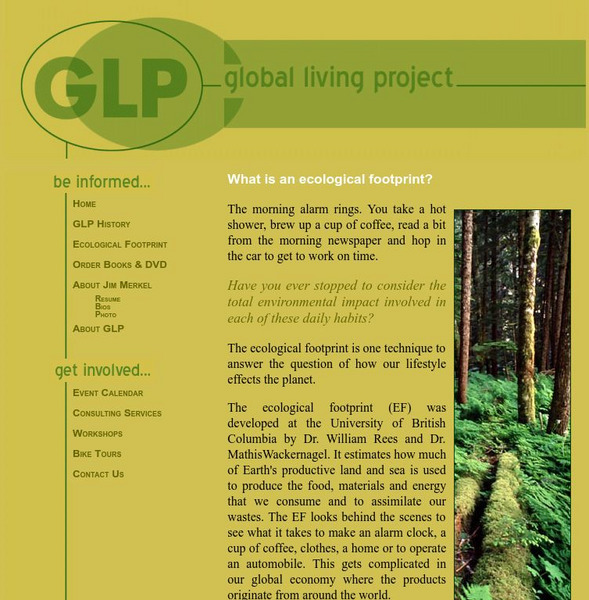Curated OER
Eco Points Score Card
Students play a game in which points are assigned to daily activities which require fossil fuels or electricity. They compare the impact their energy and transportation choices have in everyday life.
Curated OER
I Want It! I Need It!
Learners compare the difference between needs and wants. In this needs vs. wants lesson plan, students play a sorting game with picture cards, depicting illustrations of survival needs and material things. Learners sort the picture cards...
Curated OER
Shrinking Spaces
Learners describe the impact of population growth on the environment. They describe how cities affect their surrounding environment and explain how cities are handling growth and its resulting effect on the quality of life. They visit...
Curated OER
Exploring Three Categories of Human Induced Environmental Problems
By exploring the three categories of human-induced environmental problems students can gain a global perspective.
Curated OER
Waste Management
Students explore the impact on waste on the environment, and the impact of the 3R's (reduce, reuse and recycle) as a means of diminishing the waste created by humans.
Curated OER
Economic Use of Public Natural Areas
Students examine the public controversy between the use of public natural areas for economic activities by viewing video clips, researching on the Internet, and calculating sustainable land.
Curated OER
What Is Sustainability?
Learners discuss environmental preservation and sustainability and their role in consumption and preservation. After a brief demonstration of how limited our resources are, students determine which natural resources they use most...
Curated OER
Environment: Waste Walk
Young scholars assess the positive and negative affects of humans on the environment. The lesson explores ways in which individuals and societies can reduce the negative impact on the environment. By taking a "waste walk" around their...
Curated OER
Get- To Know Mammals
Learners take a field trip and record information about mammals. In this mammals lesson, students hunt for tracks, waste, or other evidence that a mammal exists in this habitat. Learners complete a worksheet on the evidence they have found.
Curated OER
Get to Know: Mammals
Students discover the mammals in their community. In this animal lesson, students survey their school grounds for signs of mammals. Students examine tracks, droppings, and other signs of wildlife to learn more about the animals and their...
Curated OER
The Great Pollinators
Students discover the reproductive parts of a plant. In this biology lesson plan, students identify and categorize several different plants they dissect in class. Students record their information using a data chart.
Curated OER
Water Use and Conservation
Students discuss the different types of water found on Earth. They discover why not all water is used for drinking and calculate how much water they use. They create their own water conservation plan.
Curated OER
THe Trash We Pass
Young scholars identify the sources of pollution and waste in their community. They examine the process of recycling and how to eliminate some of their family waste.
Curated OER
Community Action
Fifth graders brainstorm a list of decisions that students make daily that affect the welfare of the environment categorizing them as being either helpful or harmful. They then trace local actions to distant consequences to determine how...
Curated OER
What Is Sustainability
Students investigate the concept of how people are dependent upon natural resources and how they can apply them to be maximized in usefulness. The students are encouraged to develop an appreciation for the environment. They conduct a...
Curated OER
The Story that Tracks Tell
Eighth graders observe and investigate animal tracks. They draw prints for local animals and switch with another student to guess the animal, identify animal tracks in a nearby wood lot, create plaster casts of the tracks, and write a...
Curated OER
Biodiversity in Our Watershed
Eighth graders create a database of animals and birds in the area in which they live. They use molded prints to make a cast of an imprint from a specific animal. They identify and research animals and prepare an outline for an oral...
Other
Scic: Ecological Footprints From Around the World [Pdf]
For this lesson, students will discover their own ecological footprint and will be able to compare it to that of people in various developing countries. They will also explore how their actions can impact the earth.
Other
Best Foot Forward: Ecological Footprint Calculator
Measure your ecological footprint, and see how many land and resources you use in your everyday life. Find out how your choices affect the natural world, and then find ways to make changes in your lifestyle to help the environment.
Idaho State University
Idaho State University: Global Processes, Resources and Our Ecological Footprint
An extensive report on the creation of our ecological footprint on the earth and how it impacts the global processes and natural resources.
Other
Glp: What Is an Ecological Footprint
The morning alarm rings. You take a hot shower, brew up a cup of coffee, read a bit from the morning newspaper and hop in the car to get to work on time. Have you ever stopped to consider the total environmental impact involved in each...
Other
The Sustainable Scale Project: Ecological Footprint
The Ecological Footprint is rooted in the fact that all renewable resources come from the earth. It accounts for the flows of energy and matter to and from any defined economy and converts these into the corresponding land/water area...
Climate Literacy
Clean: Ecological Footprint
Students explore their own ecological footprint in the context of how many Earths it would take if everyone used the same amount of resources they did. They compare this to the ecological footprint of individuals in other parts of the...
Science Education Resource Center at Carleton College
Serc: Population Growth, Ecological Footprints, and Overshoot
For this three-part activity, students apply linear, exponential, and rational functions to explore past and projected U.S. population growth, carbon footprint trend, ecological overshoot, and effectiveness of hypothetical carbon dioxide...

















![Scic: Ecological Footprints From Around the World [Pdf] Lesson Plan Scic: Ecological Footprints From Around the World [Pdf] Lesson Plan](https://static.lp.lexp.cloud/images/attachment_defaults/resource/large/FPO-knovation.png)





